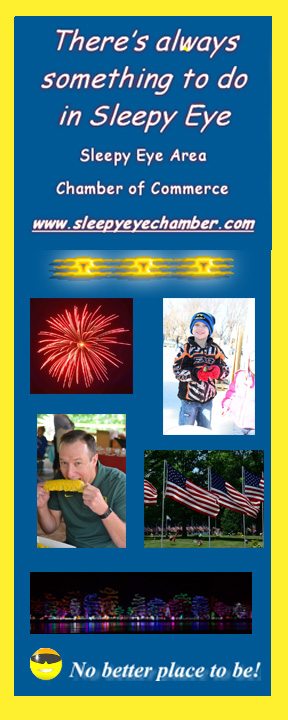There are a lot of great things about being young. One is that you can mostly ignore your health. That’s true for most, not all, if we’re lucky and/or blessed. At a certain age, though, you begin to think about your health. Let’s pick a number. Oh, say, 63. You have to do more than just think about it. You have to do something. You can still hope to be lucky and/or blessed, but don’t count on that.
There is a lot of information about living healthily aimed at us new old duffers. There are typically three legs to the stool that are mentioned: nutrition, exercise, and sleep. The first two seem self-evident. But sleep?
Sleep is an odd thing to write about. Despite the things going on deep in the inner workings of our mind and body, we’re not awake for it. On the surface where we live, sleep seems a sea of nothingness. The world keeps turning, people are busy on night shifts or with crying babies, half the globe is in daytime. But we drift along in that darkened sea, unaware, not knowing what we don’t know.
There are things we share with all our brethren in the animal world. Breathing, eating, some less delicate matters, and sleeping. When life is already so short, it always seemed to me to be a design flaw that we are supposed to sleep through a third of it.
If we must be unconscious a third of our life, I’d like to suggest we reconfigure things so that we hibernate in the winter. Instead of missing out on eight hours every day, we’d skip four cold months. That seems a fair compromise. I like the idea of burrowing into some hole like a bear, and then slowly waking when I hear the drip, drip of melting snow from the March sun above.
But then, I suppose day and night roughly coinciding with wake and sleep works out. Maybe it’s best I’m not in charge of the design for human life on Earth. If we hibernated, useful things like hockey and snowmobiles wouldn’t exist.
Why is sleep such a big deal? Turns out sleep isn’t laying around and doing nothing. Scientists admit that we don’t fully understand sleep, but we know all manner of essential things are going. Our body is healing damaged cells, boosting our immune system, and recharging our heart and cardiovascular system.
Beyond those necessary physical tasks, sleep is vital for creativity and memory. One scientist explained it this way. When we are awake our senses are constantly bombarded with an explosion of sights, sounds, smells, touches, and tastes. It’s like a million tiny jigsaw pieces are created and floating in our subconscious. In sleep, our mind slides pieces together that belong, building our personal map of the world. Some pieces get connected in ways we hadn’t thought of. Probably most pieces are simply discarded to keep life manageable in our brains.
I mentioned the three parts of health being nutrition, exercise, and sleep. I eat better than I did 20 years ago. I try to be physically active every day by work or exercise. But I’m a really lousy sleeper.
I can fall asleep on a dime. But staying asleep is another matter. A lot of nights I wake and look over the side of our bed to see our illuminated clock telling me it’s 3:00. Or 2:00. Then it’s a matter of whether the rest of the night will be dozing fitfully or lying awake in the dark. Either will be a witch’s brew of weird thoughts and weird dreams, till I finally give up and go make coffee.
When I was younger, I used to say sleep was overrated. I’d stay up late and get up early, and life was good. Now, my next day is dependent on how I slept the night before. The better I sleep, the better I feel. I almost hate to admit that. My younger self wouldn’t have believed my older self.
We have a perfectly wonderful bedroom for sleeping so I can’t blame that. My mate is small and typically still. The yard light is on the other side of the house. A few years ago, I got some ringing in my ears. Pam brought home a white noise machine that I like having next to the bed. I’ve fooled around with things like melatonin and valerian root, which seem to help and then don’t.
Oh well. There are worse yokes to bear. Maybe I should try milk and cookies.
I mentioned dreams, and that is one advantage I suppose to restless sleep. When I am dozing in and out of wakeness, I can have whole series of odd and goofy dreams, which can be entertaining. Awake, I try to figure out the bizarre set of things in my life that got connected by my subconscious in the dream I just had.
It’s funny though, how our dreams seldom stay with us. Most of the time, by the middle of the day, that intense and peculiar dream is gone. They are like a coating of snow that falls in a late fall night, and then melts in the morning sun.
I am not alone in sleep troubles. I find comrades in these night battles in lots of conversations and lots of articles. People who study this point to the Industrial Revolution and the creation of artificial light as a watershed moment. Until then, our bodies adjusted and responded to day and night the way every other creature on Earth has. Manmade light made the night shift and all-nighter possible. Our brains which evolved to function in sun and dark, suddenly had possibilities that had nothing to do with nature’s light. I’d guess sleep issues leapt around then.
We can find an appreciation for sleep that long predates the sleep clinics we have today. In Proverbs 3, we are instructed to follow the Lord and take up his wisdom. If one does that, “When you lie down, you will not be afraid; when you lie down, your sleep will be sweet.”
Five hundred years ago, Shakespeare appreciated the gift of good sleep. “Innocent sleep. Sleep that soothes away all our worries. Sleep that puts each day to rest. Sleep that relieves the weary laborer and heals hurt minds. Sleep, the main course in life’s feast, and the most nourishing.” Reading that makes me want to take a nap.
I’ll end with something my mom used to say. It’s a bit unnerving, but she meant it lovingly. “Sleep tight. Don’t let the bed bugs bite.”







